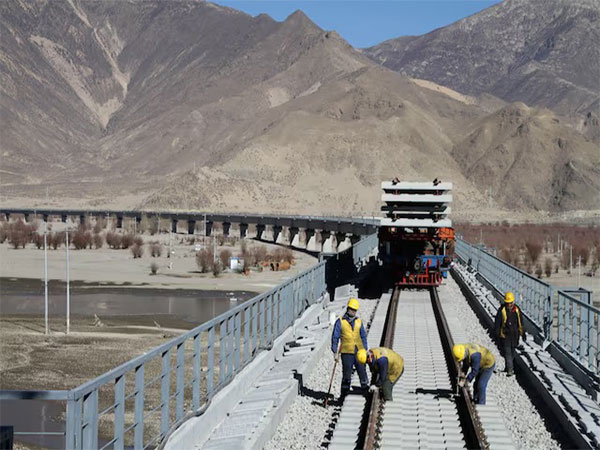Turbulence in Tibet: China's Geopolitical Water Power Play
China's Motuo Hydropower Station threatens regional stability, leveraging control over the vital Yarlung Zangbo River. The $170 billion project endangers India and Bangladesh, transforming water into a strategic tool. Critics argue it's less about renewable energy, serving instead as a bid for geopolitical dominance within South Asia.

- Country:
- China
China has embarked on an ambitious project to build what it claims will be the world's largest hydropower installation, the Motuo Hydropower Station, situated in the politically sensitive region of Tibet. The $170 billion venture is projected to generate an astounding 300 billion kilowatt-hours of electricity annually, equivalent to the entire annual consumption of the United Kingdom. However, its construction has sparked significant alarm across South Asia.
Experts and reports, including those from the Institute for Energy Research (IER) and the Lowy Institute, paint a troubling picture. Located on the lower reaches of the Yarlung Zangbo River – known as the Brahmaputra once it crosses into India and Bangladesh – the hydropower project provides China with potential control over a crucial transboundary water source. This situation gives Beijing a commanding position, potentially turning water into a geopolitical weapon.
In reaction, both India and Bangladesh have raised concerns, with India contemplating constructing a buffer dam on the Siang River to mitigate sudden water discharges from China. Beyond electricity, the project aligns with China's broader goals of industrialising Tibet and transferring power eastward. Nonetheless, critics argue this disguises the exploitation of the region. Furthermore, seasonal variability due to glacial melt could compromise energy reliability, yet China seems unfazed, using the project as a strategic asset rather than an ecological solution.
(With inputs from agencies.)
- READ MORE ON:
- China
- Motuo Dam
- Tibet
- hydropower
- geopolitical
- South Asia
- Yarlung Zangbo
- Brahmaputra
- India
- Bangladesh
ALSO READ
Tension in Sweida: Syria's Geopolitical Struggle
Tajikistan's Aggressive Deportations of Afghan Refugees Amid Geopolitical Shifts
China's Strategic Ports: A Geopolitical Tug-of-War
Clash Over Non-Vegetarian Food Sparks Expulsion at South Asian University
Pakistan and U.S. Bolster Trade Relations Amid Geopolitical Shifts










